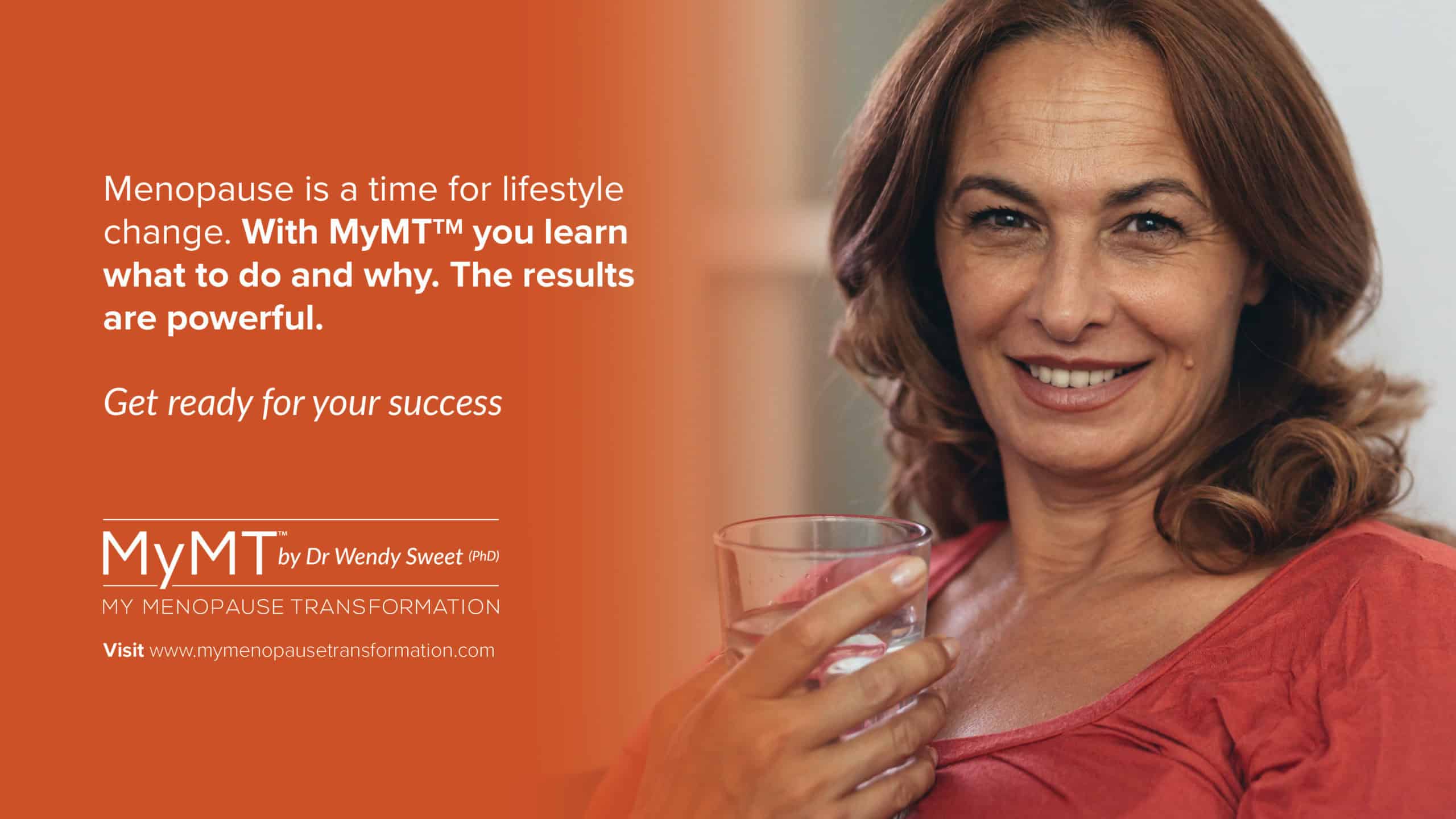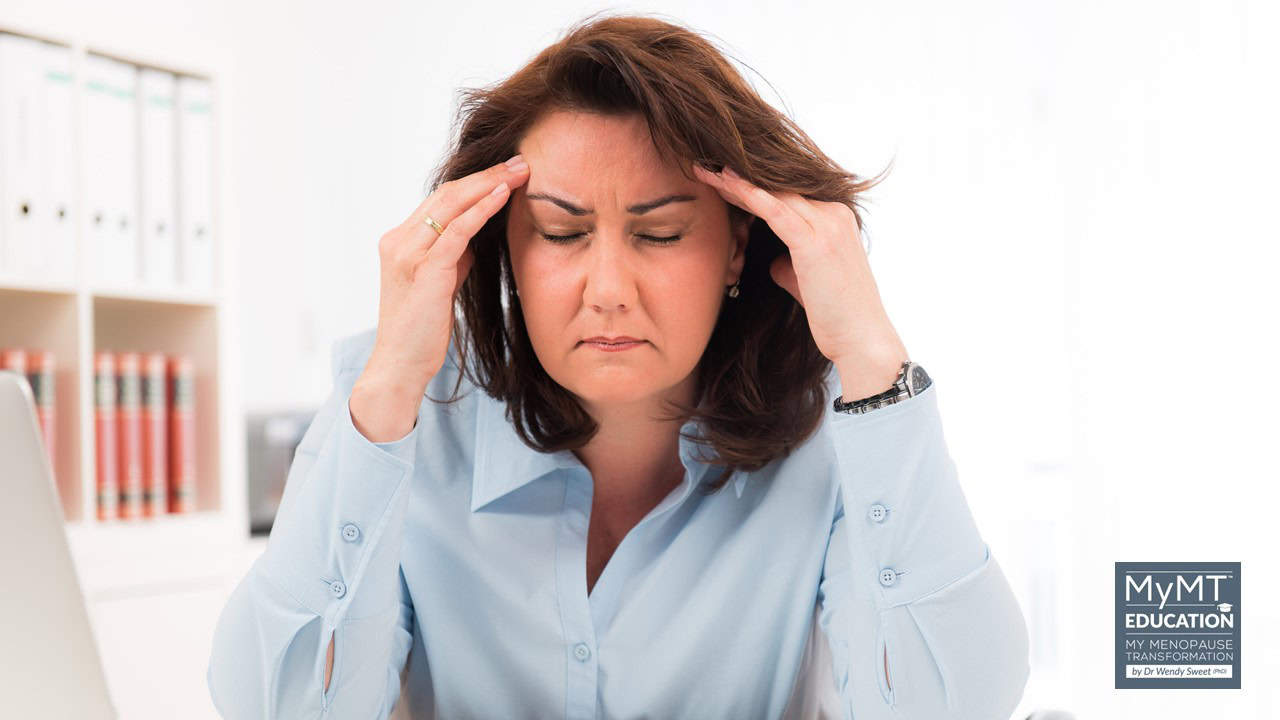If you were to get your clients to pull out a blank piece of paper and list all the factors that drain their energy and/or stress them out over a day or a week, I wonder what would be on that list?
From everything which might be over-whelmingthem in their workplace, to their home environment and work/ life balance stressors, to being distracted with menopause symptoms, I’m sure that many of them would have a list that was quite lengthy!
But I also wonder if you or your clients would list some other factors contributing to stress levels and fatigue too. These may include:
- not sleeping,
- eating too much food or not enough food,
- poor liver health,
- too much high-intensity exercise,
- changing circulatory and heart health as they reach menopause and for some of them,
- the changes to their life over the past couple of years when the world went into chaos.
All of these factors drain energy levels in your clients, leading to physical and emotional stress as they transition menopause. And the connection between client stress levels and menopause symptoms are important to understand.
Just as stress is the body’s way of mounting a response to meet the demands of changes or challenges, fatigue is a natural by-product of prolonged exposure to stress. Stress can drive fatigue, and fatigue can down-regulate or up-regulate stress, depending on whether women are sleeping or not.
For those of your clients who aren’t certain whether they are in menopause or not, then interestingly, a study of Korean women between 40 and 70 years of age who were in natural menopause, found a statistically significant correlation between stress level and age at natural menopause. Women who experience a high level of stress in daily life enter menopause earlier than their less stressed counterparts. [Choi et al, 2015].
Being aware of the energy that women use up daily is an important step in understanding the behavioural, environmental and emotional causes of daily fatigue and stress.
It took me a long time to understand that doing a lot of exercise as well as running a busy household, working and studying, were all ‘energy-robbers’. The more energy that is being expended day after day, causes the adrenal glands to become fatigued. I learnt this the hard way myself.
Your adrenals help to produce stress hormones. When the adrenals are working hard with so much going on in life and the fact that women may not be sleeping, the adrenals over-produce the stress hormones. What ensues are a host of symptoms that I’m sure some of you may recognise,
- Poor sleep and difficulty getting up in the morning.
- Hot flushes
- Anxiety/ Racing heart rate
- Feelings of over-whelm and powerlessness
- Foggy brain/ Forgetfulness
- Fatigue that stays with you – especially in muscles and/or joints
- Reliance on what I call ‘C.A.T.S.’ – caffeine, alcohol, tobacco or sugar and salt
- Frequent colds and flu
- Hair loss (including eyebrows!)
- Loss of menstrual cycle (amenorrhea), especially in female athletes.
- Decreased libido
- Decreased ability to handle stress.
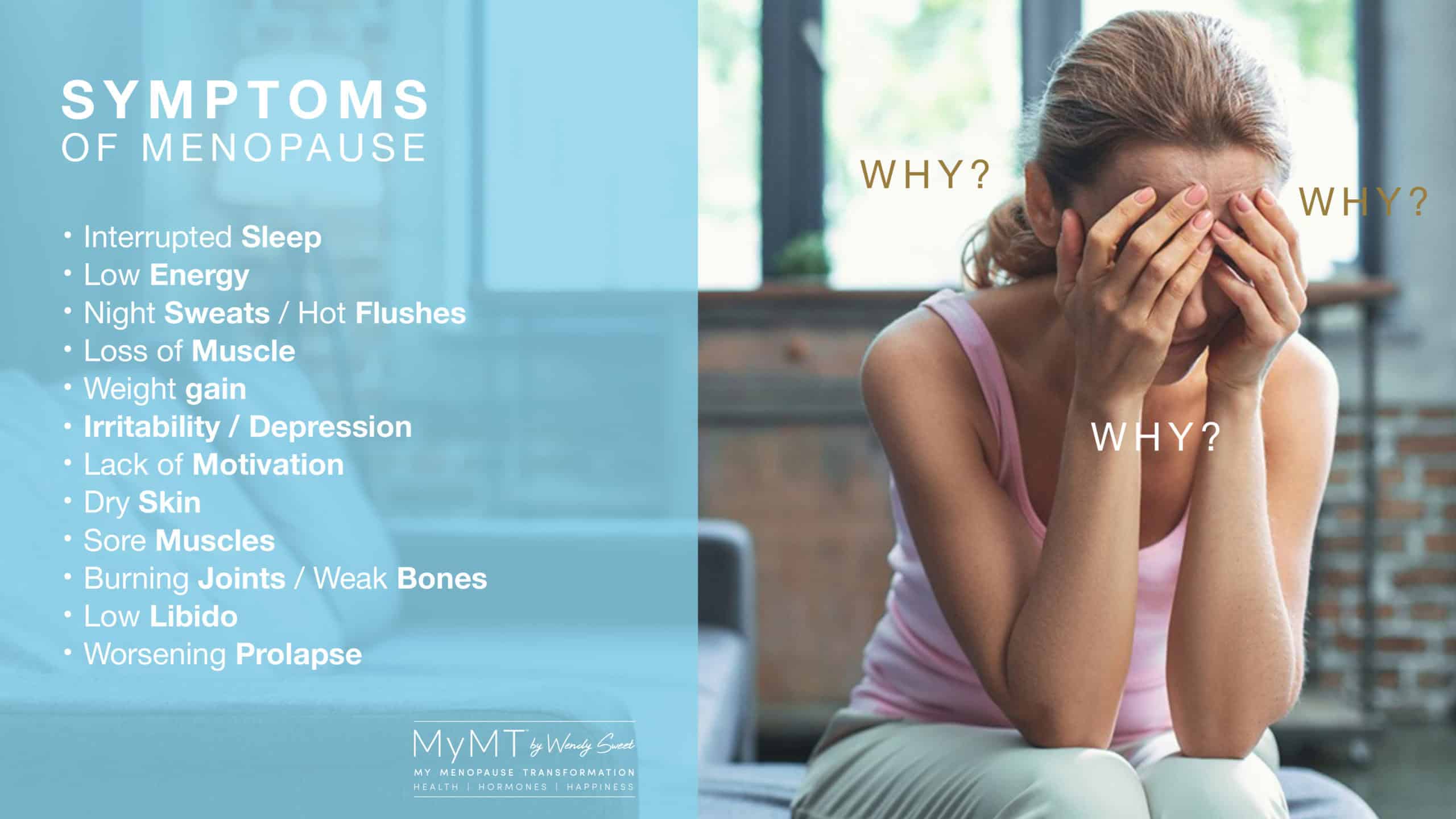
The adrenal glands are the glands of stress.
They sit on top of your kidneys like a floppy felt hat and they are involved in the processes of and recovery from most of your body functions. Their sole purpose is to help your body cope with stress and enable you to survive.
The adrenals have worked hard throughout your life to help you to manage stress from innumerable sources- ranging from injury to disease to pregnancy to work and relationship problems.
These glands might be small, but they are powerful.
This is because they secrete hormones which influence every major physiological process in the body.
They affect how well you utilize fats and carbohydrates and convert these foods sources into energy; whether you store fat more rapidly or not (especially around the abdomen for women); whether you maintain normal blood sugar levels and therefore, blood pressure and they also help to protect immune function – something that has never been more important to women who have experienced the lasting effects of changed immune function during and after the pandemic.
Your adrenals also secrete hormones that have a protective function on inflammation – an important consideration for women as they age. As is the fact that for women in post-menopause, the adrenal glands become the major source of the sex hormones circulating through the body
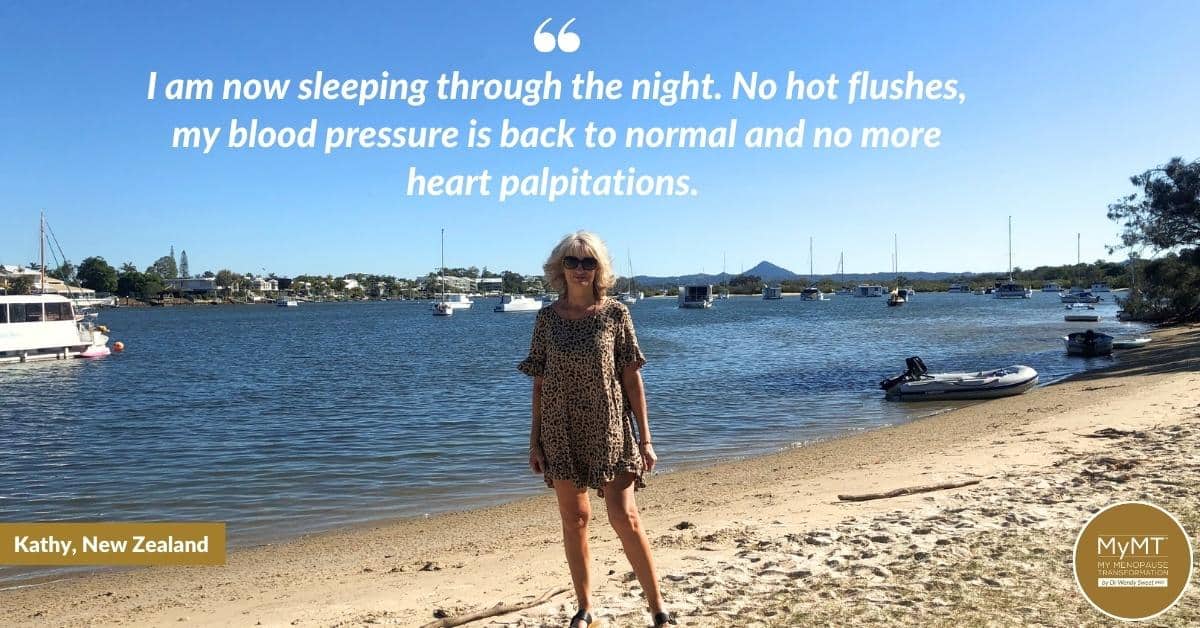
What is Adrenal Fatigue?
Adrenal Fatigue is known as hypo-adrenia.
From the root word ‘hypo’ (low) and adrenia (related to the adrenals). It is a deficiency in the normal functioning of the adrenal glands. Over many years, numerous factors affect these hard-working glands and what we must also remember, is that as women move through menopause, they are ageing and changing. As ageing occurs, several changes in hormone levels take place – in the adrenals especially.
This includes increased cortisol secretion patterns, especially on awakening in the morning.
As I mention to women on my own programmes, if they are waking up to hot flushes, then this is often due to their cortisol release is stronger in the morning as you age. (Yiallouris, Tsioutis et al, 2019) and it’s why turning around their circadian cycle and sleeping more deeply is an integral strategy in the MyMT™ programmes.
‘With each increment of reduction in adrenal function, every organ and system in your body is more profoundly affected, mentions Dr James Wilson (PhD), in his book on adrenal fatigue.
‘Changes occur in your carbohydrate, protein and fat metabolism, fluid and electrolyte balance, heart and cardiovascular system and even in your sex drive. Many other alterations take place at the biochemical and cellular levels – interestingly, even your body-shape can transform when your adrenals are fatigued.’ [Wilson, 2010 p.24]
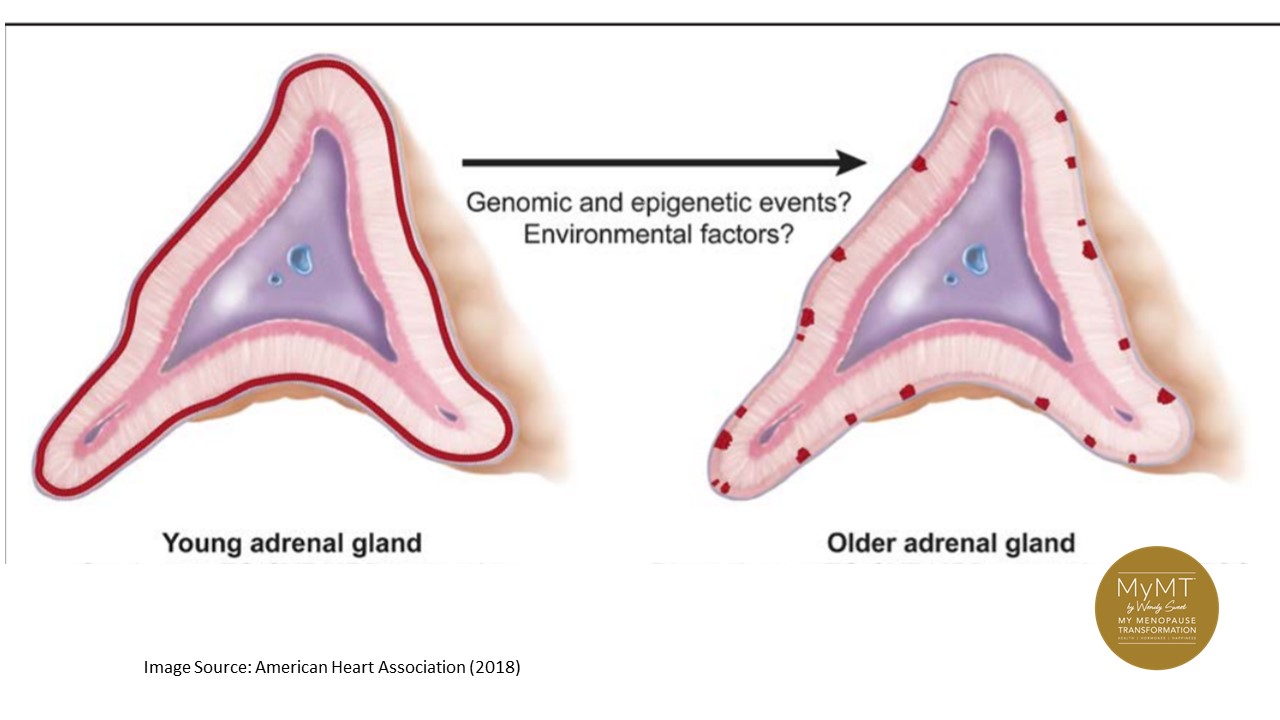
Over 60 years ago, Hans Selye (the ‘father’ of research into the stress-adaptation-response) recognised the paradox that the physiologic systems activated by stress not only harm the body, but also protect and restore it.
In other words, some stress is good, too much over a long time is not so good. When we are exposed to sources of stress over long periods of time (years in fact), then the impact of this is that both thyroid and adrenal hormones work harder to re-balance the body.
The same phenomenon happens in over-trained, burnt-out athletes. It’s why motivation to train takes a dive, and many then begin to experience immune system health changes. The technical term for this is ‘over-training’ and it is a well-researched phenomenon in athlete conditioning and optimal training adaptation.
But here’s the thing.
It’s happening to women in menopause as well. You don’t need to be an athlete for your body to go into ‘distress’. We already know this from health and medical research. When we aren’t sleeping, we aren’t recovering.
And if we aren’t recovering, we start to feel wired and tired, stressed and anxious and it’s not long before we experience ‘Burn-out’.
The accumulation of stress affects every organ in our body, especially our adrenals. It makes our menopause symptoms worse. For many of us, it leads to worsening menopause weight gain as well.
There is not much escape from our stressful lives these days is there? I’m not just referring to emotional stress either. It’s environmental stress too. As many of my Australian ladies discover, living in a hot environment creates extra ‘stress’ on our body too.
That’s why you need to understand that as we transition through menopause, the accumulation of all the various sources of stress can impact hugely on our symptoms and our weight.
When our body is in ‘distress’ e.g. not sleeping, accumulation of inflammation, feeling over-whelmed by our emotional stress, feeling time poor or not eating well (or regularly), then allostatic load increases.
Emotional and physical stress are accumulative – and it’s not just the ‘here and now’ stress. I’m also talking about the decades-long build-up of oxidative or physical stress that manifests as inflammation and metabolic chaos in our body. If your muscles are sore, if you have fibromyalgia, if your gut health has changed, if you have put on weight, and if you are feeling hot and bothered all the time, and you aren’t sleeping, then yes, these are all signs that your body is ‘stressed’. You may be ‘adrenally fatigued’.
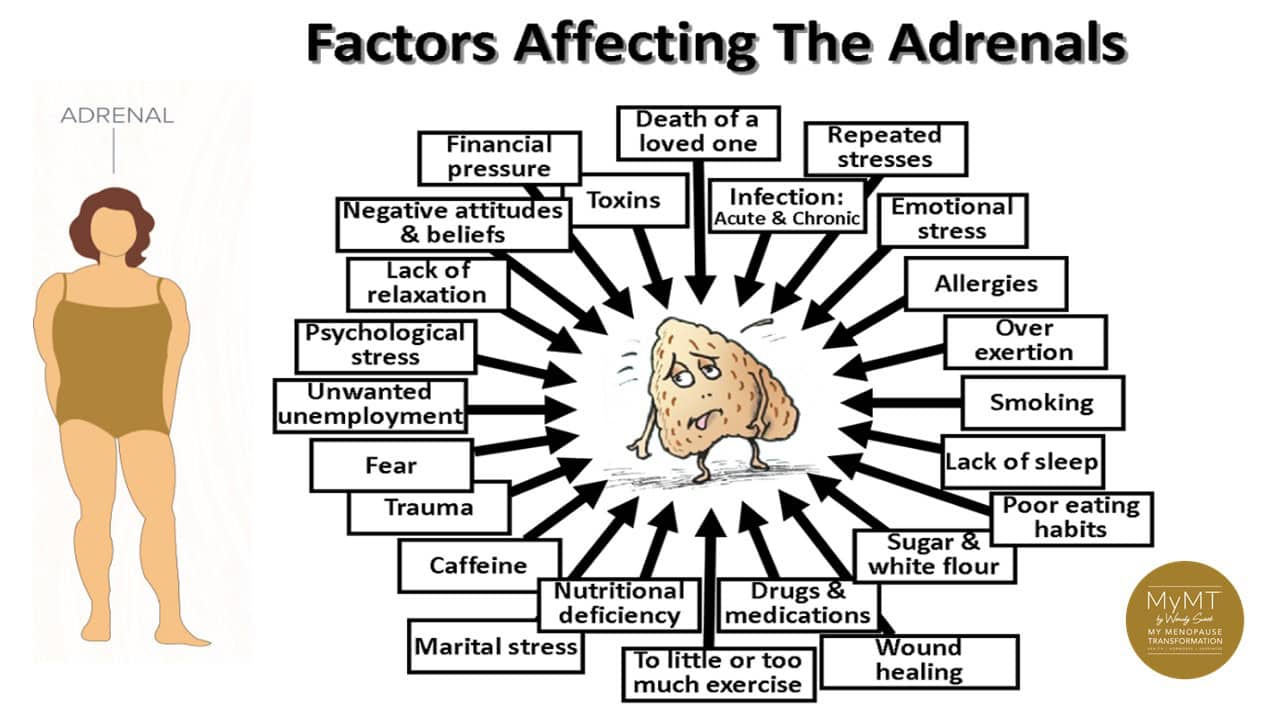
Understanding ALLOSTATIC LOAD IN CLIENTS:
All these various sources of stress, [emotional, physical and environmental] and how frequently our body is exposed to this stress, is coined in the term ‘Allostatic Load’. From a physiological basis, when the allostatic load increases then it contributes to allostasis.
This refers to the body’s ability to try to re-balance itself.
It’s why, if we aren’t sleeping and our body isn’t coping, our thyroid, adrenal and pituitary glands are working harder to re-balance up the internal environment too. Many of you may end up with immune-health concerns which remain with you as you move from peri-menopause to post-menopause.
What can I do about adrenal fatigue in my clients?
Restoring and healing the body requires a combination of strategies and I talk about these in the My Menopause Transformation programmes. How women expend energy, how much food they have and the quality and timing of that food to restore energy is important to the management of menopause symptoms as well as adrenal fatigue.
However, so too is getting adequate sleep and restoring liver and gut health.
These organs affect adrenal function too as do your client’s perceptions of stress and worry and anxiety. Taking back control of these aspects of their life is important, but this takes time and practice. I have a lot more of the ‘how to’ in the Menopause Practitioner Programme for managing stress and symptoms.
The most important aspect of ‘change’ clients need to make however, is unarguably to do with their lifestyle, so here are my four top hints for you to introduce to your clients to help them reduce the sources of and accumulation of adrenal fatigue.
- Reflect on ‘how they became so tired and what are their daily ‘energy-robbers’ – if you can help them to remove some of these sources, e.g. high intensity exercise or workplace stress, then this is a starting point. Adrenal glands cannot heal unless they have the opportunity to rest.
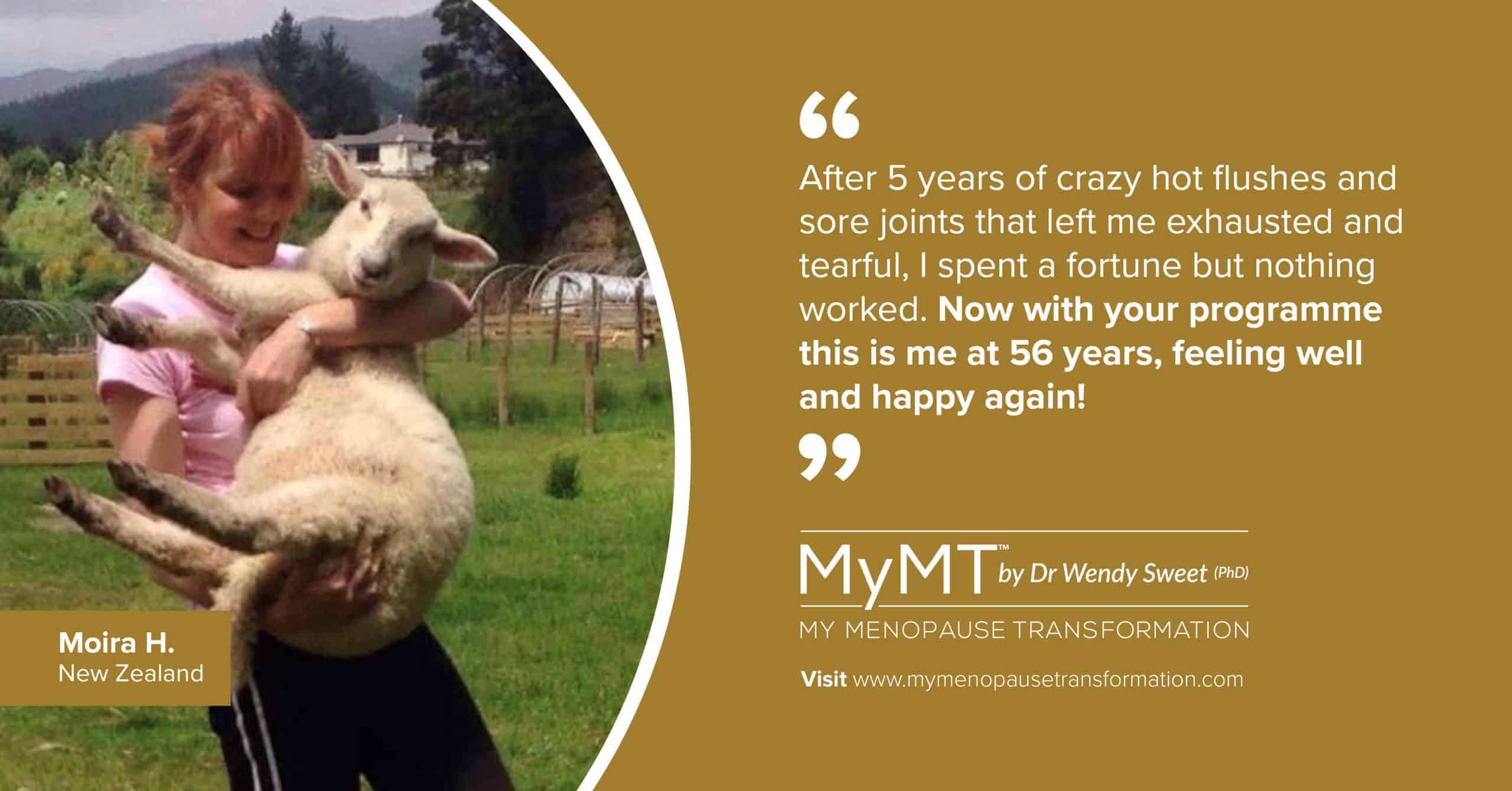
- Manage their blood sugar levels – stop all the fasting and crazy dieting and eat every 3-4 hours. The MyMT™ programmes follow a Mediterranean Dietary approach which I have modified specifically to suit our menopause transition and I talk to this on the courses. Learning about metabolism and circadian rhythm is crucial to applying my principles of ‘when’ to eat, especially for those women who are shift workers.
- Increase Vitamin C intake. When the adrenals are fatigued, adrenal vitamin C secretion is part of the stress response. The more cortisol that is made, the more Vitamin C used. Vitamin C is essential to the hormone cascade and the manufacture of all of the other hormones. However, many Vitamin C supplements are made from corn syrup and therefore, contribute to inflammation in the body, so food is best.
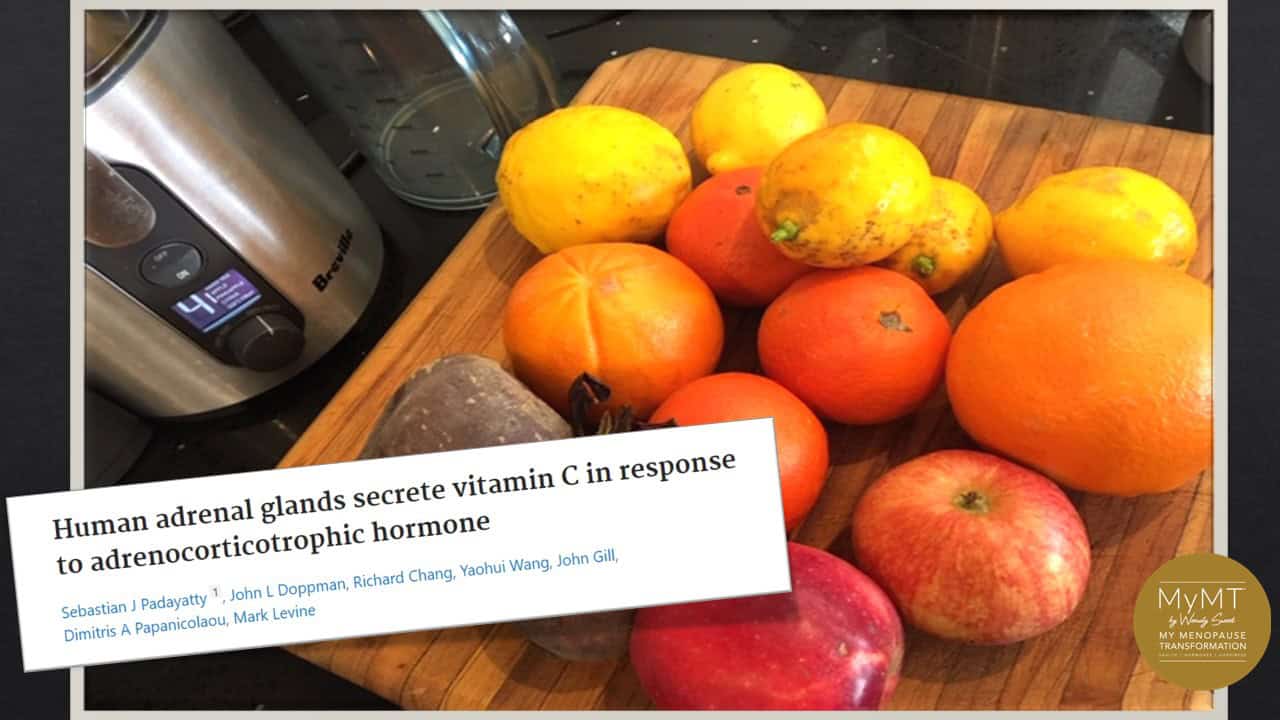
- Get a regular course of massage and/or myofascial release therapy for at least 6 weeks. I often talk about this aspect of our health in my private coaching community. If your stress hormones (cortisol and adrenalin) are elevated and you are in adrenal fatigue, then you may be feeling sore in your muscles and joints. This may also manifest or turn into Fibromyalgia Syndrome – which is a chronic condition characterized by general pain, joint rigidity and intense fatigue. Studies have shown that Fibromyalgia is associated with sleep alterations, serotonin levels and muscle energy metabolism as well as pain. But whether you have Fibromyalgia or not, then getting some myofascial release work undertaken by a qualified professional is helpful, because we carry stress in our fascia – the outer sheath that covers your muscles.
I also talk about this in my Masterclass on Menopause, so if you aren’t quite ready for the longer CPD course or the Menopause Weight Loss Coach Course, or the Science of Menopause for Health Coach Course, then perhaps explore starting with my 12 week programmes yourself.
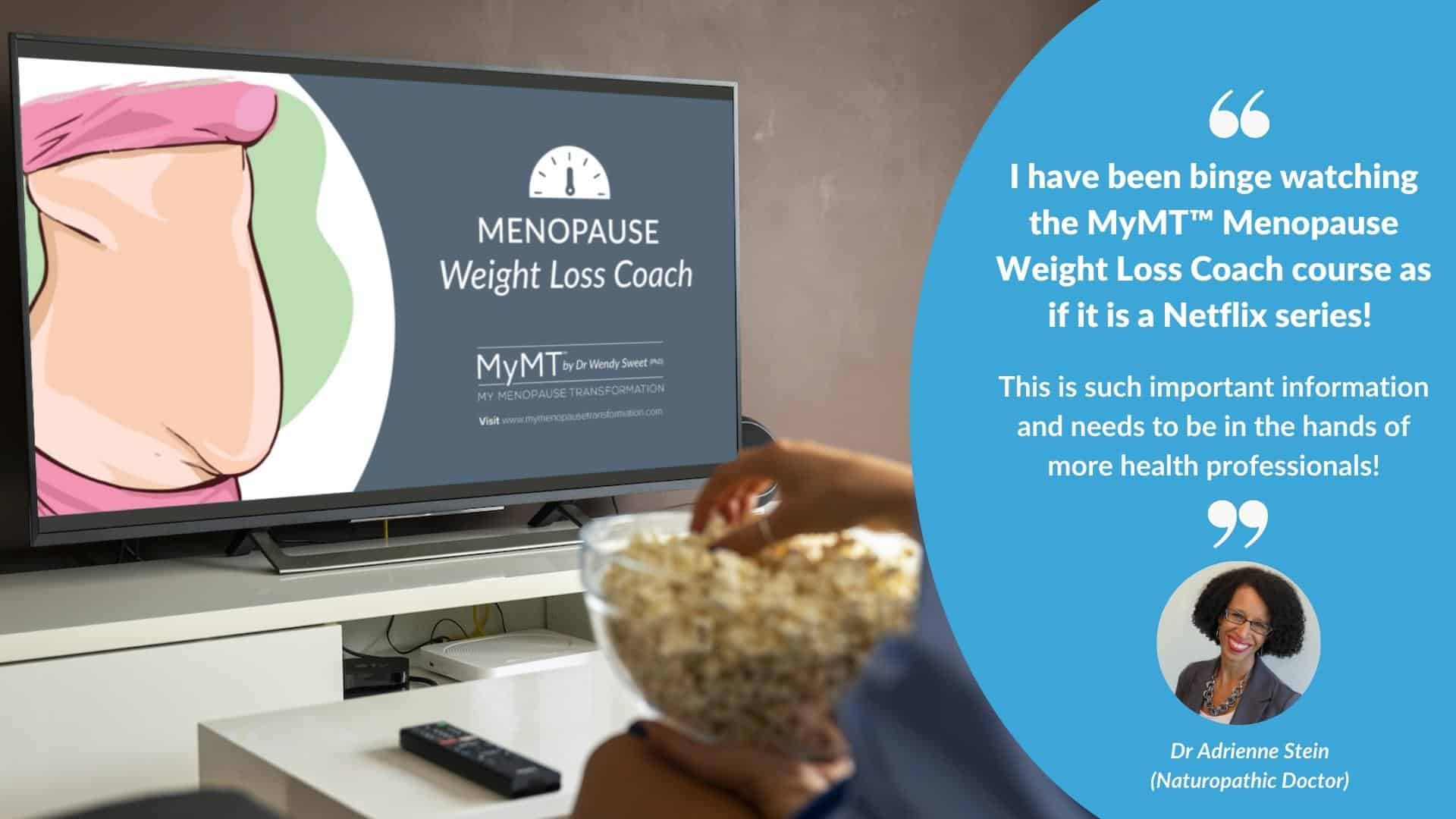
References:
Arnot M, Emmott EH, Mace R (2021) The relationship between social support, stressful events, and menopause symptoms. PLoS ONE 16(1): e0245444.
Castro-Sánchez AM, Matarán-Peñarrocha GA, Granero-Molina J, Aguilera-Manrique G, Quesada-Rubio JM, & Moreno-Lorenzo C. (2011). Benefits of massage-myofascial release therapy on pain, anxiety, quality of sleep, depression, and quality of life in patients with fibromyalgia. Evid Based Complement Alternat Med., 561753. doi: 10.1155/2011/561753.
Choi, B. O., Lee, Y. J., Choi, J. H., Cho, S. W., Im, H. J., & An, J. E. (2015). The Association between Stress Level in Daily Life and Age at Natural Menopause in Korean Women: Outcomes of the Korean National Health and Nutrition Examination Survey in 2010-2012. Korean journal of family medicine, 36(6), 305–309.
Guidi J, Lucente M, Sonino N, Fava GA. Allostatic Load and Its Impact on Health: A Systematic Review. Psychother Psychosom. 2021;90(1):11-27. doi: 10.1159/000510696.
Padayatty S., Doppman J., Chang R., Wang Y., Gill J., Papanicolaou D., & Levine M. (2007). Human adrenal glands secrete vitamin C in response to adrenocorticotrophic hormone. Am J Clin Nutr. 86(1):145-9.
Taylor-Swanson, L., Wong, A. E., Pincus, D., Butner, J. E., Hahn-Holbrook, J., Koithan, M., Wann, K., & Woods, N. F. (2018). The dynamics of stress and fatigue across menopause: attractors, coupling, and resilience. Menopause (New York, N.Y.), 25(4), 380–390.
Yiallouris, A., Tsioutis, C., Agapidaki, E., Zafeiri, M., Agouridis, A. P., Ntourakis, D., & Johnson, E. O. (2019). Adrenal Aging and Its Implications on Stress Responsiveness in Humans. Frontiers in endocrinology, 10, 54.
Wilson, J. (2010). Adrenal Fatigue: The 21st Century Stress Syndrome. Petaluma, CA: Smart Publications,
